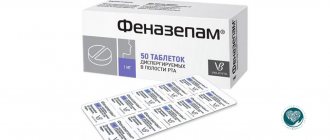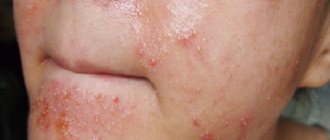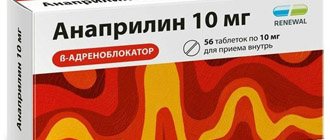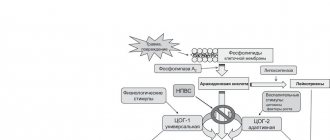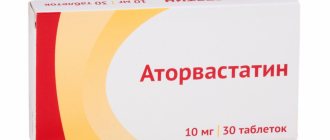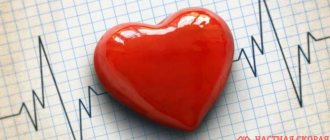Brain
The effect of caffeine on the blood vessels of the brain is specific - when ingested, caffeine leads to their narrowing. Along with the vasoconstrictor effect, caffeine also has other effects:
- accelerates metabolism locally
- stabilizes the functioning of cortical and subcortical structures
- eliminates drowsiness
- increases performance
- improves the flow of nutrients and oxygen to the brain
Heart and coronary arteries
In small doses, caffeine is beneficial for heart health because it:
- normalizes blood circulation and muscle function, which reduces the likelihood of angina, atherosclerosis and heart attack
- increases the speed of movement of the excitation wave with a weakened pulse
- increases resistance to exercise by stabilizing blood flow
- increases the flow of oxygen and nutrients due to the expansion of coronary vessels
Kidneys
Caffeine dilates the blood vessels of the kidneys, has a pronounced diuretic effect, accelerates the evacuation of waste and toxins from the body. At the same time, the alkaloid removes calcium, the deficiency of which negatively affects the health of bones, teeth, and hair. This side effect is not dangerous for people who drink no more than 2 cups of coffee per day and eat properly. After an hour, the effect of caffeine on the kidneys weakens - the blood vessels gradually narrow.
People with kidney pathologies are not recommended to abuse coffee and other caffeine-containing drinks. This reduces the risk of complications and exacerbation of chronic diseases.
Arterial pressure
The dilating effect of caffeine on blood vessels ensures an increase in the vascular lumen, which leads to an increase in blood pressure in both hypertensive and hypotensive patients. Therefore, people with fluctuations in blood pressure are not recommended to abuse caffeine-containing drinks, as the hypertensive crisis increases.
After consumption, caffeine causes an increase in the lower and upper blood pressure by 5-12 mm. Hg Art., and the effect lasts up to 4 hours. And in people who regularly take caffeine in various forms, the increase in blood pressure is insignificant.
Harm to blood vessels
In the absence of severe diseases of the cardiovascular system, caffeine has a beneficial effect on blood vessels and even 2-3 cups of caffeine-containing drinks will not cause harm to health. However, in the presence of diseases of the heart muscle and vascular system, even a small amount of caffeine can provoke pain in the heart muscle, headaches, dizziness, attacks of nausea and panic. Therefore, it is not recommended to drink caffeinated drinks for the following diseases:
- vegetative-vascular dystonia – caffeine enhances the symptoms and provokes the appearance of causeless anxiety and increased anxiety;
- hypertension – coffee causes an increase in blood pressure, which significantly worsens the general condition of the patient and can lead to a hypertensive crisis;
- myocardial damage with pain and heaviness in the area of the heart muscle, which are associated with a deficiency of potassium, calcium, magnesium, which are washed out with excessive consumption of coffee and other caffeinated drinks;
- angina pectoris and tachycardia, in which caffeine increases their symptoms and provokes complications;
- vascular aneurysm - caffeine has a destructive effect on the vascular walls and can provoke hemorrhage;
- glaucoma - an alkaloid aggravates the course of the disease, as it increases intraocular pressure.
Tonic effect
The effect of caffeine on the functions of the central nervous system (CNS) is proportional to its individual characteristics: a weak organism requires a small dose, a strong one requires large volumes.
The substance stimulates the activity of the central nervous system:
1. Strengthening and concentrating the processes of excitation of the cerebral cortex. 2. Weakening conditioned inhibition. 3. Improving reflex activity. 4. Stimulating the activity of the spinal cord due to facilitating the flow of impulses along the nerve fibers. 5. Reducing reaction time.
Caffeine can affect nervous activity:
Coffee and oncology
There is a myth that coffee causes cancer. However, the World Health Organization's International Agency for Research on Cancer notes that there is no substantiated evidence for this claim. Although coffee does contain a carcinogen - acrylamide. However, the same substance is found in potatoes, potato chips, hot toast, and even breakfast cereals.
Researchers note that very hot drinks may be carcinogenic. As a rule, these are those whose temperature exceeds 65 degrees. The fact is that when they get inside a person, they are able to destroy the cells of the esophagus and act as a catalyst for tumors. However, this is just data from one of the studies and food for thought for lovers of very hot coffee. Traditionally, coffee is served at a temperature of 60-75 degrees. If the drink burns your lips, it would be advisable to cool it slightly.
Despite this, in the spring of 2021, a California court ordered American coffee producers to label their coffee containing carcinogens. Even the well-known company “Starbucks” could not prove to the court that the substance formed during coffee roasting does not increase the risk of developing cancer.
Although the result of one study, which involved scientists from Italy, Great Britain and the USA, on the contrary, proved that moderate coffee consumption is associated with a reduced risk of breast, colon, endometrial and prostate cancer. Also, thanks to its use, there is a possibility of reducing the risk of developing Parkinson's disease and type 2 diabetes. Moreover, scientists have concluded that coffee can even be part of the diet.
Daily intake
It is more correct to indicate the daily intake not of coffee, but of the caffeine it contains. How much is there in a regular cup of hot drink?
You can focus on the following numbers:
- soluble - from 60 to 100 milligrams (at the rate of 2 teaspoons of granules);
- espresso – from 80 to 130 milligrams;
- cappuccino (lattes and other similar drinks) – from 40 to 70 milligrams;
- natural boiled (in the traditional way in Turk) - from 110 to 170 milligrams.
The optimal daily intake is up to 200 milligrams of caffeine , that is, 2 regular cups of coffee. The permissible maximum is 400 milligrams.
If it is more, it will harm the heart, as there will be an excessive load on it. For children under 14 years of age, coffee drinks in any form are generally not recommended (this also applies to pharmacological preparations that contain caffeine).
In theory, if you follow these recommendations, there will be no negative consequences from drinking coffee. This has been confirmed by many years of research (when scientists wanted to find out whether the life expectancy of those who prefer tea and those who drink only coffee changes).
Antioxidant action
Free radicals are substances formed as a result of unfavorable environmental factors affecting humans (ultraviolet radiation, high temperatures, radiation), which are characterized by strong chemical activity, enter into unwanted interactions, and cause damage or cell death. The ability of radicals to act on DNA (genetic material) leads to its breakdown and the development of tumors.
Caffeine has powerful antiradical properties - it removes hydroxyl compounds, modulates the synthesis of nitric oxide in cells, while reducing the damaging effects of radicals. Moreover, the caffeine-free drink contains the same amount of antioxidants.
Drinking antioxidant-rich coffee daily reduces the risk of developing:
The importance of blood vessels in the human body
Before we talk about whether alcohol narrows or dilates blood vessels, let's talk about the meaning of the latter. There are vessels in all parts of the body, face, and limbs. They carry blood from one organ to another. They serve as a connecting link, without which the full functioning of the human body is impossible.
After drinking alcohol and under the influence of other negative factors, the composition of the blood changes greatly. The concentration of toxins, waste, and various toxic compounds increases in it. As a result, failures occur. They can lead to irreversible consequences and even death.
Without proper blood circulation, life is basically impossible. That is why it is important to know which alcohol dilates blood vessels, which constricts it, and whether it can be drunk to “warm up”.
Ground or instant?
Ground coffee is roasted and then ground natural coffee beans. Instant is cooked in different ways, but sublimation (drying at low temperature in a vacuum) is considered the highest quality. However, this is an expensive pleasure and instead of granules as with sublimation, the coffee is simply dried. This is exactly the kind of coffee we are used to seeing on supermarket shelves in the form of aromatic dry powder.
There are opinions that coffee beans are healthier. After all, unscrupulous manufacturers' instant coffee may contain additional impurities (for example, substances that increase shelf life).
However, some experts believe that instant coffee is no different from ground coffee. After all, it’s purely a matter of production technology: the coffee beans are ground and dehydrated. Therefore, the only difference between coffee beans and instant coffee is the caffeine content. On average, in a cup of instant coffee, depending on the type, the caffeine content is in the range of 60-80 mg, freshly ground - 60-120 mg.
Did you know that Luwak coffee is considered the most expensive type of coffee? Musang, the Malayan palm marten, is involved in its production. The most delicious coffee drink with a chocolate-caramel flavor is obtained from the excrement of this animal: the animal eats only coffee beans.
Application for weight loss
Consuming caffeine wisely helps you lose weight. For the best effect, it is recommended to combine drinking coffee or an energy drink with fitness classes.
Weight loss occurs due to:
Coffee and teeth
Coffee causes darkening of the enamel. Unfortunately, this is not a myth, but a reality, as many dentists will agree. However, this only happens if there are microcracks in the teeth. But even if you drink a drink through a straw, trying to protect your teeth, contact cannot be avoided. Therefore, there is no point in being sophisticated.
It is also true that drinking coffee with sugar contributes to the destruction of tooth enamel. Sweet foods provoke the accumulation of pathogenic microbes, which accelerates the process of plaque formation. I also don’t recommend combining coffee with ice cream. It is from the combination of hot and cold that microcracks can appear on the teeth.
For those who have already decided to brush their teeth immediately after drinking coffee, it is better not to do this. Hot drinks soften tooth enamel, making it easier to damage during brushing.
By the way, Italian scientists have proven that roasted coffee has high antibacterial properties and protects the oral cavity from bacteria of the genus Staphylococcus aureus and Streptococcus mutans. According to this characteristic, even green tea is inferior to the drink. So, to avoid dental problems, it is enough to visit the dentist regularly and take care of your oral cavity.
Caffeine and sports
When consuming caffeine no more than 16 mg/kg, muscle activity increases, but larger doses reduce it.
Small amounts of caffeine improve the performance of competitive athletes:
This is explained by the substance’s ability to break down glycogen and fats into glucose (the main source of energy for muscles), promote the production of adrenaline, and accelerate the utilization of oxygen by tissues, stimulating metabolism.


